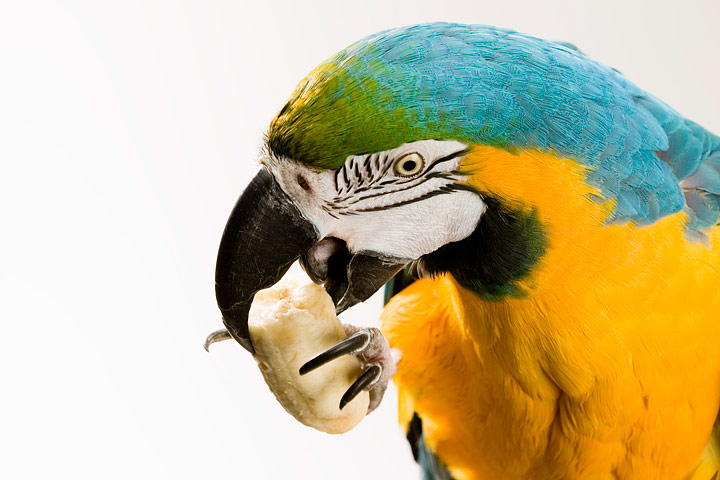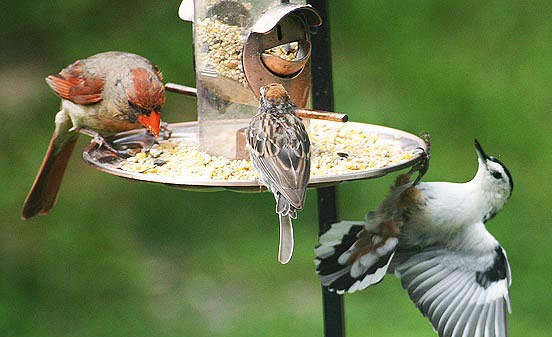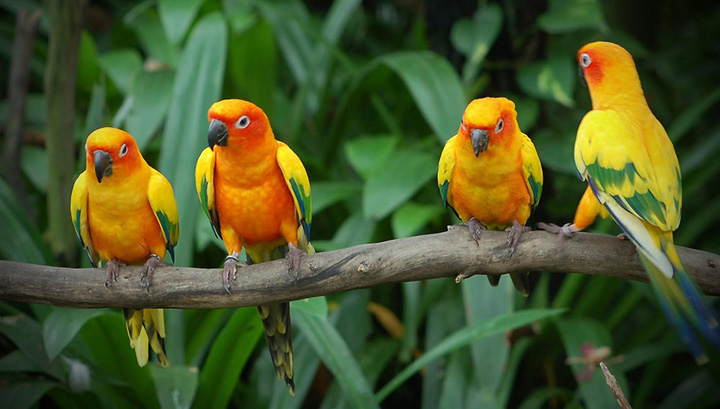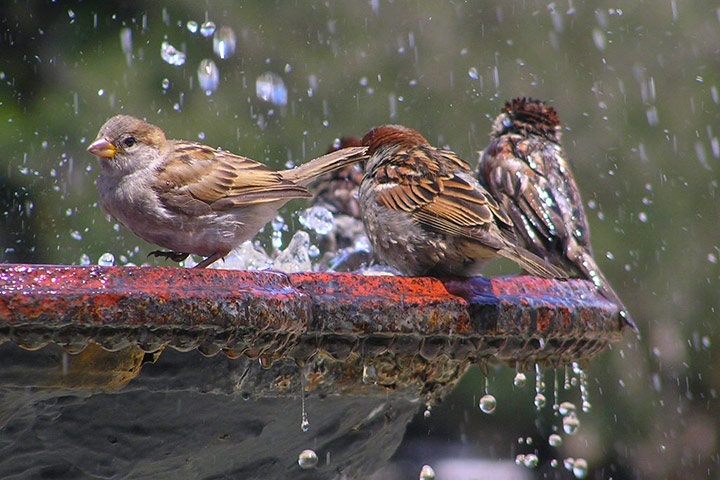
There are some foods that should be enjoyed in moderation and others your birds should avoid altogether.
In captivity, birds’ diets and energy requirements are different from their ancestors in the wild. They no longer have to compete for food, territory, or environmental stability, defend themselves or fly. This is advantageous to the long-term survival of these beautiful animals, but the end result is that they are not nearly as active and mobile as a wild bird.
Nutrition basics
Birds in captivity are often fed diets too high in energy (fats), and supplemented with table scraps, sunflower seeds and peanuts for treats. Consequently, they can be overweight. A proper diet, balanced in nutrients and energy, is needed for a bird to maintain a normal weight. Always feed the proper diet for your bird species. And most importantly, dole out treats sparingly.

The snack black list
In addition to foods that can be detrimental to your birds well being, there are several foods that have been identified as being extremely dangerous, if not fatal, if ingested. The alphabetical list of foods below should not be feed to any bird:
- Alcohol – There are several known cases of accidental consumption. Alcohol can depress a bird’s organ system and cause death.
- Avocado – The skin and pit of this fruit have been known to cause cardiac distress and heart failure.
- Caffeine – Coffee beans, coffee grounds, tea and soda. The effects of caffeine can cause cardiac distress, hyperactivity and possible cardiac arrest.
- Celery – Celery itself isn’t necessarily bad for parrots, it’s the stringy part of celery that can cause problems; namely crop impactation. Remove the stringy parts from celery if you wish to let your bird chomp into some.
- Chocolate – Chocolate will induce vomiting and diarrhea in a bird, but more importantly, it will affect the central nervous system and eventually cause death.
- Dried beans – Uncooked beans can be a choking hazard but they also contain a toxin called hemaglutin.
- Fruit seeds – The seeds from apples, cherries, peaches, apricots and pears can contain trace amounts of cyanide.
- Mushrooms – Mushrooms are a type of fungus and can cause digestive upset and even liver failure.
- Onions, garlic and chives – Very small amounts are ok, but excessive consumption can cause vomiting, diarrhea and other digestive problems.
- Salt – Too much sodium can eventually result in death due to dehydration and liver malfunction.
- Tomato Leaves – Stems, leaves and vines of the tomato plant.




Leave a Reply